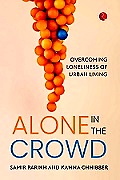
views
Relationships are at the core of human existence. We seek others and the interdependence we have on those around us helps build and maintain a sense of community and connectedness. It creates the space for sharing experiences, exchanging ideas, creating a vision and having good times. It further ensures there are significant others who one can reach out to in times of difficulties, who one can rely on and whose presence one can be assured of.
The Challenge of Maintaining Relationships
The pandemic has made connecting with others more challenging, given the busy and hectic routines people mostly had along with the added burden of having to manage additional chores at home and care for family members. The problem has further extended on account of the need to rely mostly on virtual platforms as means of communicating and connecting. More particularly, this has become a challenge for young people who prefer to be outdoors, meet in person, spend time chatting and catching up while having novel experiences together.
The mundaneness of virtual platforms and social media interactions compounded by the inherent energy and restlessness that characterises the young has made it a more complex task to establish, nurture and sustain meaningful relationships.
The times we live in, where everything is available at the click of a button and there are innumerable distractions, maintaining relationships becomes even more difficult. The complications also arise on account of the preoccupation that the young can have with their gadgets. The enormous amount of media and content that they have exposure to can take away attention from significant others and making efforts to connect with people in the real world.
The present times have also contributed towards everyone feeling overwhelmed with the situations that surround them. There have been significant problems through the last couple of years that have impacted moods, thoughts as well as coping abilities. As a result, there has been the emergence of a need to avoid engaging in interactions, particularly those that could have a potential serious tonality to them and which may require extending the self to support another as well. Although there have been innumerable instances where people have provided support, yet there is a fatigue that has set in, which complicates and impacts the ability to continually provide care and support.
Building Meaningful Relationships
Building meaningful relationships necessitates that people be willing to change the lens from which they are viewing the current scenarios. It requires that a shift be made from viewing them from the context of the self to that of the self and the other. This would involve being able to recognise and respond adequately to the needs of the other. It would also include ways of being able to extend oneself beyond what one may feel one is capable of at a given time. Finally, it also means ensuring that there is reciprocity within the relationship.
The following are some aspects that must be kept in mind in order to build meaningful relationships, particularly for the young.
1. Have a long-term vision: Attempt to go beyond the here and now and look towards what you are seeking in the long run for yourself within the context of the relationships you have and how you desire for them to develop over time. Having a vision ensures that you can continually take the small steps in a consistent manner that would help you reach that goal. It also ensures that you do not make choices that may be beneficial to you only in the short run.
2. Be willing to invest time and energy yourself: Do not get stuck in cycles of thinking about who is doing how much. At different points in time, different people in the relationship dynamic will contribute more or less towards the relationship. While there needs to be an overall balance, you cannot keep drawing comparisons all the time.
3. Truly engage with others: Step away from the superficialities that can come to characterise most relationships by truly engaging with others. Ask meaningful questions and build a genuine interest in what they are sharing. Do not agree or engage in conversations because it looks right but have the conversations that are in fact right and contribute to both you and the other in significant ways.
4. Be available in difficult times: Difficult times can visit any individual at any given point in time. Don’t hesitate to extend yourself. You might not be there to share moments of joy but when you know someone is feeling low and is in a challenging space, do connect with them. Show them that you are available even if you may not be able to solve a situation for them.
5. Make consistency your mantra: Doing things, being available, reaching out and connecting are all invaluable and what makes them irreplaceable, contributing towards building meaningful relationships, is your consistency in doing so. So ensure that you are consistent in all that you do within the relationships you do have.
Keep It Real
While gadgets, social media, online platforms are an integral part of our lives, it is important to be able to step away and to reach out to people around us in order to have real conversations, which do touch upon real issues and situations that surround us. Making a concerted effort to connect with people and to do so with consistency is the key as is the need to ensure that we are being our authentic selves in these interactions.

Dr Samir Parikh is a psychiatrist and Kamna Chhibber is a clinical psychologist. They are authors of the recently published book Alone in the Crowd: Overcoming Loneliness in Urban Living by Rupa Publications. The views expressed in this article are those of the authors and do not represent the stand of this publication.
Read all the Latest Opinions here




















Comments
0 comment